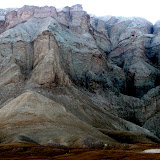1. Educational Tours. On your next visit to Israel, set aside half a day to accompany an Israeli organisation on a tour to learn about different aspects of the conflict.
For tours of East Jerusalem - Ir Amim
For tours of Hebron and the South Hebron hills - Breaking the Silence
To meet Palestinian families in the West Bank - The Villages Group
2. Tell your friends. Let the voices of peace grow louder. The next time you speak to friends or family about the Israeli-Palestinian conflict, the next time you hear someone say that there is no hope for peace, tell them about all the different peace initiatives between Israelis and Palestinians. Tell them about the people who do believe in peace and who are trying to make it happen.
A list of peace organisations can be found here (scroll down to the bottom) and here. Take 10 minutes to look through. Try to remember two organisations and spread the word!
3. Stay informed. Choose one new source of information to find out what is happening on the ground. Choose a credible source, and be daring, pick one from the other side of your political leaning. You can subscribe to information bulletins or e-newsletters.
For the lefties out there try:
For the righties out there try:
4. Make a donation. If you already give money to Israel, think about allocating 5-10 percent of that amount to peace initiatives. If you do not give any money to Israel think about supporting one peace initiative this year. Personally, I like the following organisations:
If you want to support human rights:
B'Tselem (The information center on human rights in the Occupied Territories)
Hamoked (Providing legal defence for individuals)
Gisha (Working on freedom of movement)
If you want to help improve people's health:
If you want to support peace dialogues between Israelis and Palestinians:
The Peoples Peace Fund (bringing together Palestinians and Israelis wounded in the conflict)
The Other Voice (bringing together people from Gaza and Sderot)
The Parents Circle (bringing together parents who have lost children in the conflict)
If you are interesting in art, music and culture:
The Villages Group (they just started a music center in two Palestinian villages)
If you are interested in environmental initiatives:
Comet-ME (Israelis installing solar panels and wind turbines in Bedouin villages in the Southern Hebron hills)
If you are interested in sport:
That's it. I'm done. Now do your own homework.
So here we are. Sixty one days later. Can you believe it? It is time to say good bye and to thank you for sharing this journey with me. I have cherished it dearly, and you have all made it worthwhile.
The End.
No more days to go.


